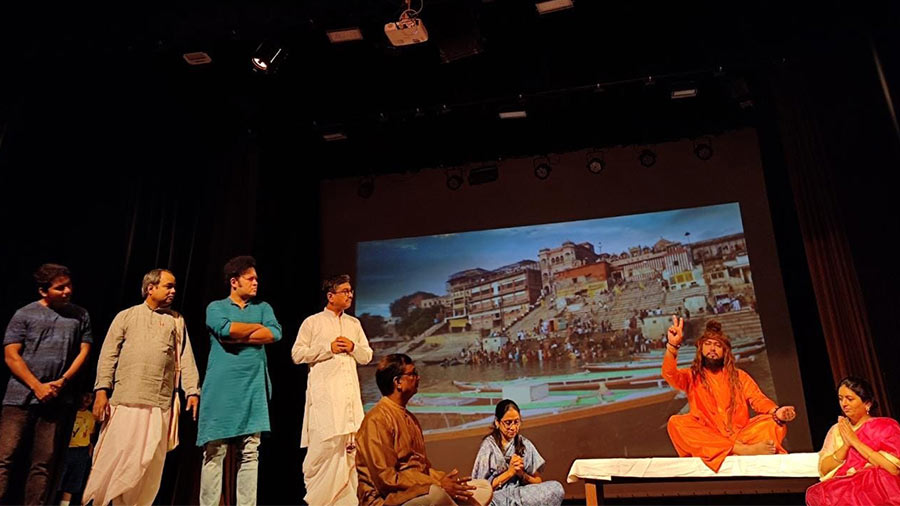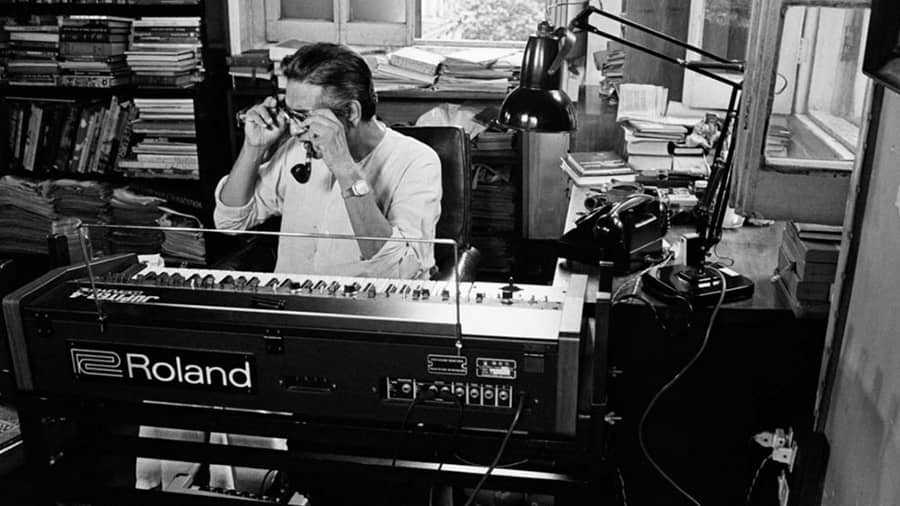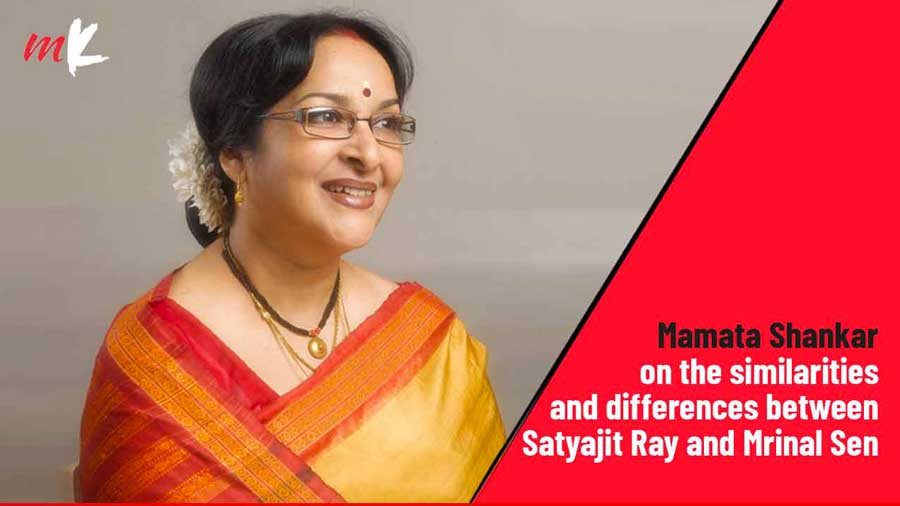The memories of Feluda, from Satyajit Ray’s 1979 classic Joi Baba Felunath, sleuthing along the dingy alleys of old Varanasi at midnight, chasing down sinister villains and conmen, hardly need a reminder.
To celebrate Ray’s 101st birth anniversary, St. Xavier’s Collegiate School (SXCS) paid a tribute to the filmmaker this Children’s Day by bringing Feluda and his all-important sidekicks — his cousin Topshe and crime-fiction writer Jatayu — right out of the silver screen onto the stage of Fr. Depelchin Auditorium in a Xaverian adaptation of Joi Baba Felunath. The play was enacted by SXCS teachers.
Crunching an almost 100-page book and a 112-minute long film to a taut 25-minute play on stage, while preserving and staying true to the heart of the text, was an unenviable task, but SXCS teachers left no stone unturned to deliver an authentic Feluda experience to their students, pulling off the most ambitious Children’s Day production in the 162-year history of the school.
‘We decided to give the children something different this year, something fun but also eye-opening!’
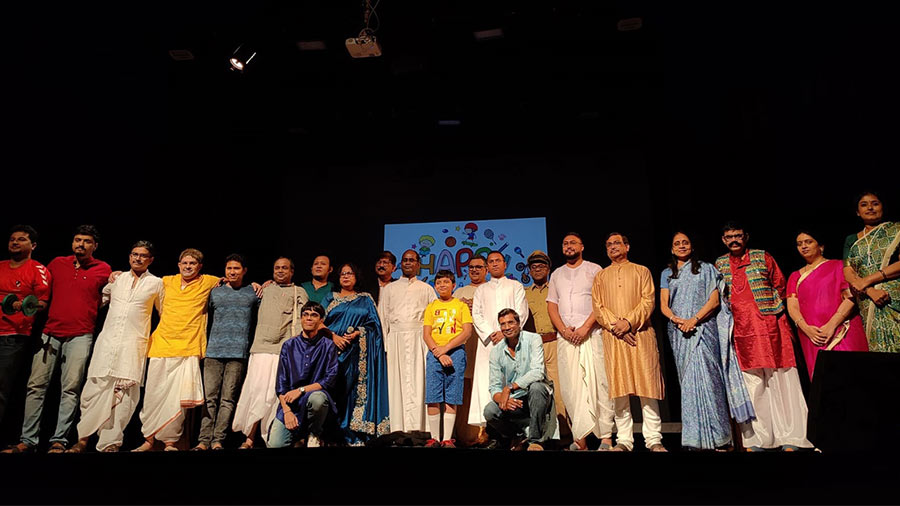
The play is being touted as one of the most ambitious Children’s Day productions in the last 162 years of the school’s history
“Children don’t read anymore, especially if it’s a vernacular book. A certain distaste and distance has grown towards the evergreen gems of Bengali culture, including the Feluda films,” felt the director of the play, Joeeta Basu, senior economics teacher at SXCS. She went on to add, “In this context, we decided to give the children something different this year, something fun but also eye-opening! We’ve all grown up reading Ray’s books and watching his films, and it seemed fitting we produced a Feluda mystery on Children’s Day.”
While the recurring constraint with producing any Feluda story for the stage circles back to the story’s tendency to be a travelogue thriller, SXCS used this as an opportunity to replicate the feel of Joi Baba Felunath’s Varanasi on Park Street. The familiar story of Feluda, Topshe and Jatayu investigating the case of the lost Ganesha statue belonging to the Ghoshal family in Varanasi, with Maganlal Meghraj, a shady businessman, and Machhli Baba as the prime suspects, made the action easy to follow.
A well-contrived mise en scene, using frequent changes in the backdrop to showcase the Dashashwamedh Ghat, deploying bhajans as an ode to the religious undertones of Varanasi and having the indulgent antagonist, Meghraj, sing a well-loved thumri — a creative addition on the director’s part — successfully transported the audience to yesteryear Benaras.
Despite being theatrical debutants, the SXCS teaching faculty held their own
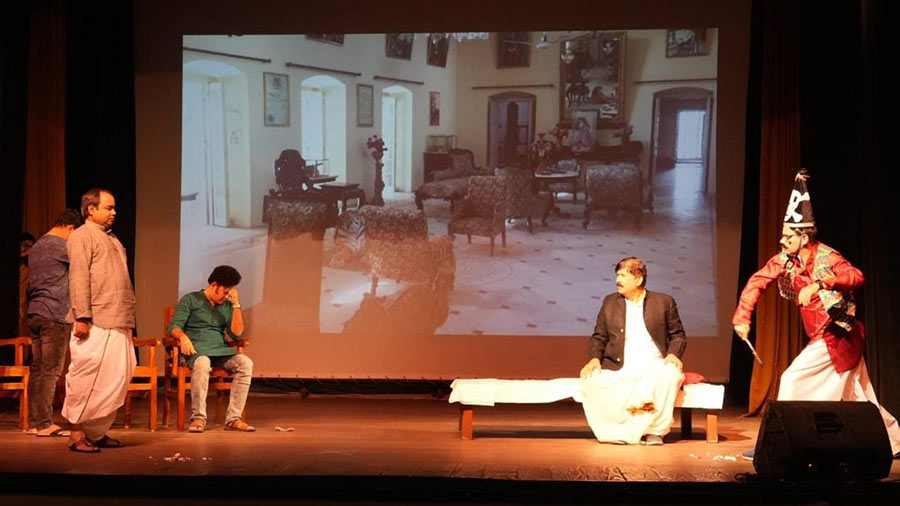
The scene where Arjun is throwing knives at Jatayu drew the loudest applause from the audience
“This is the first time after the pandemic that we’re celebrating Children’s Day and the teachers prepared really well for the play. The children enjoyed it. In the future, we’d love to see more such enjoyable productions,” said Father Dr. M. Thamacin Arulappan, principal of SXCS.
In spite of being theatrical debutants, the SXCS teaching faculty held their own, pulling off iconic characters with nuanced acting amidst an ecstatic reception from their students. Replete with tension, humour and nostalgia, the well-crafted play kept everyone enthralled for the best part of half an hour.
The scene that drew the most plaudits involved Arjun, the knife-thrower at Maganlal’s house, skillfully outlining the body of Jatayu with daggers, as Feluda and Topshe watch on, horrified and helpless. Executed at a climactic moment in the play, the intense mood of the scene was accentuated by effective lighting, thus creating a moment that’ll be remembered for a long time.
